Rwanda seeks to tap into Nature Based Solutions (NbS) to promote agriculture practices that are protecting the environment and biodiversity and still sustain food production.
This is according to researchers and other scientists at a National High Level Dialogue on Sustainable Agriculture in Kigali to discuss Sustainable agriculture last week.
Convened by the International Union for Conservation of Nature (IUCN) the dialogue between actors in the agriculture and conservation sectors, revealed that improving land health through sustainable agriculture is a significant stepping-stone required for transformation of the wider food-agriculture system in the country.
“Rwanda is prioritizing mainstreaming nature conservation into major economic activities, such as agriculture, by deploying NbS towards green growth,” said Ms. Kaori Yasuda, IUCN Rwanda Country Representative.
“In this regard,” she added, “as IUCN, we prioritize that transitioning to sustainable agriculture by improving land health, conserving biodiversity, and the future viability of food production for farmers, we focus on demonstrating how NbS can boost on farm crop productivity and biodiversity and conserve biodiversity in agricultural landscapes.”
According to Kaori, IUCN uses global standards for NbS as a framework for designing, implementing and scaling up NbS solution interventions for multiple societal benefits for local communities and farmers.
“We promote sustainable agriculture at the policy level, through embedding NbS for building resilient landscape management,” she said.
Sustainable agriculture
Dr. Olivier Kamana of the Permanent Secretary in the Ministry of Agriculture and animal resources said that with the current development focus of the food and agriculture sector of many developing and emerging economies, including Rwanda, it is impossible to expand arable land without putting more effort into food security as well as advance sustainable and commercial agriculture.
“In past experience, it has also shown that production can be increased in a more sustainable way when environmental protection is integrated into agriculture value chain development such as agroforestry, conservation agriculture, erosion control, rehabilitation of degraded forests, and concurrent reclamation of marshlands,” said Kamana.
“With that experience,” he added, “we need to change the direction of the loss of biodiversity in agricultural areas (above and underground) to achieve sustainable production systems.”
“Agricultural activities through improper production techniques should be impeded for better land use, reduce biodiversity loss, and improve ecosystem services such as pollination, pest control, and water quality and climate regulation.”
Food security
According to Dr. Jules Rutebuka, IUCN Regional Sustainable agriculture Programme Officer, among the challenges we have in SDGs is food security and food insecurity, we need to combat it and bring improved livelihoods in every fertile land.”
“IUCN is also prioritizing sustainable agriculture to improve the land health of the soil, the land in agriculture, and improve also the production because we want to feed our people,” said Rutebuka adding that NbS Rwanda context implementation should start with what farmers need.
“Farmers need soil with organic fertilizer because they can get manure fertilizer, but they need organic fertilizer sources. If they get open sources, we have to look for different alternatives to get organic fertilizer sources and one of the solutions is to have that diversified agroforestry system.”
Apart from organic fertilizers, he also noted that farmers need to practice crop rotation system, crop covers and other technologies of conservation agriculture such as mulching, crop residue retention, and use of improved vegetated fallows, among others.
Agroforestry
Dr. Concorde NSENGUMUREMYI, Director General of Rwanda Forestry Authority emphasized that in Rwanda, the authority understands that shared prosperity depends on the people’s relationships with nature and that is why the environment sits at the heart of our vision 2050 Climate Action Plans, green growth and climate resilient strategies.
“So, one of the best practices we are doing is an agroforestry which is really recognised to contribute to sustainable development of intensified and productive agriculture through the provision of ecosystem services and diversification of the production,” Said Nsengumuremyi.


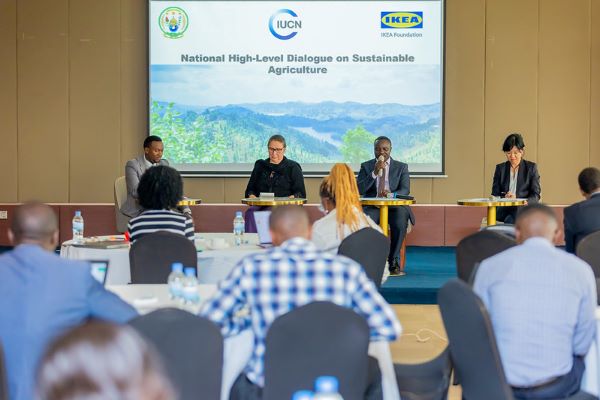
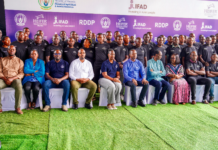

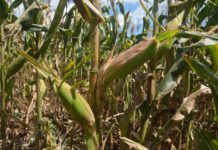
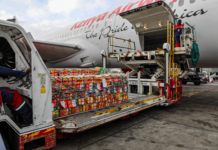

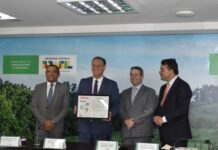
[…] Credit: Source link […]
Comments are closed.